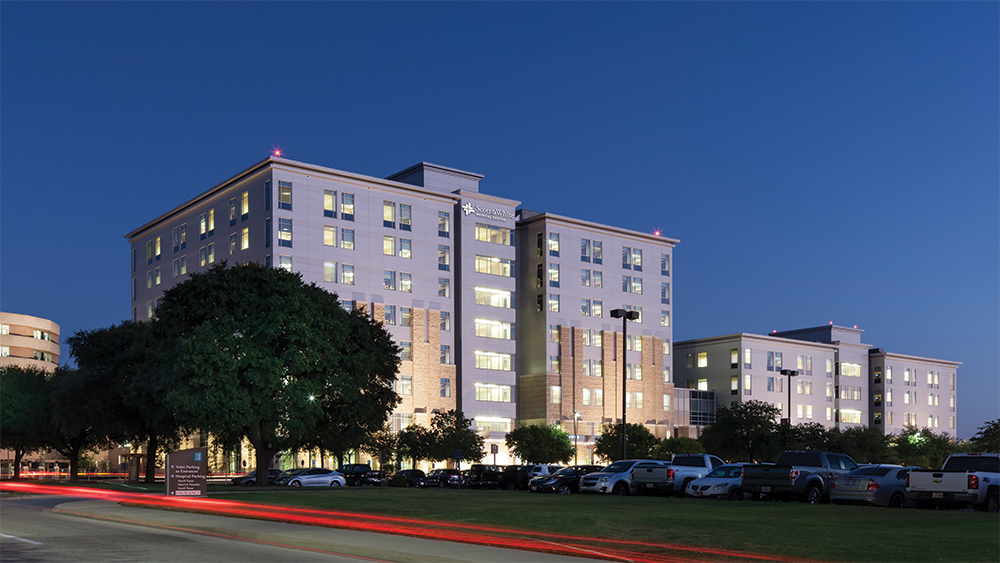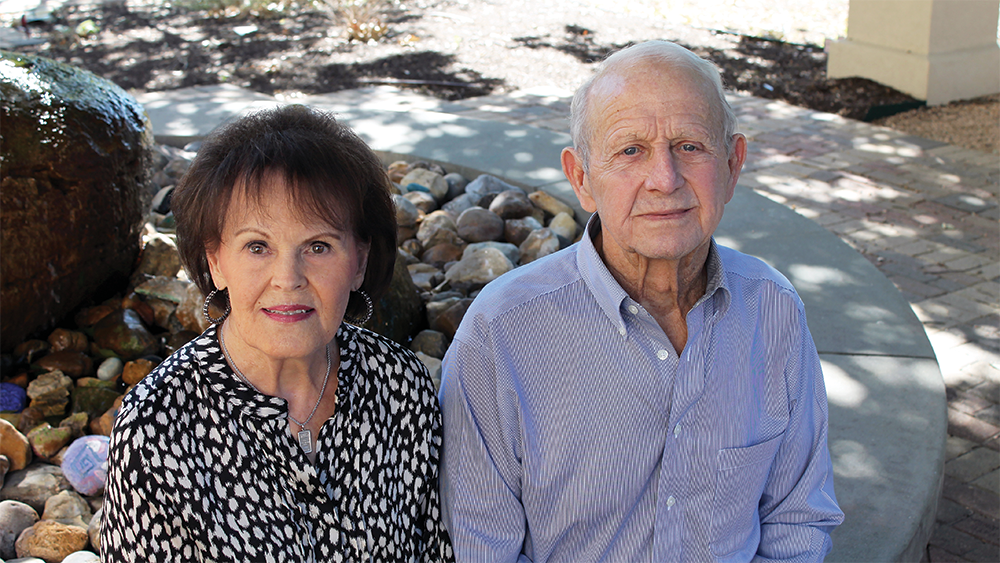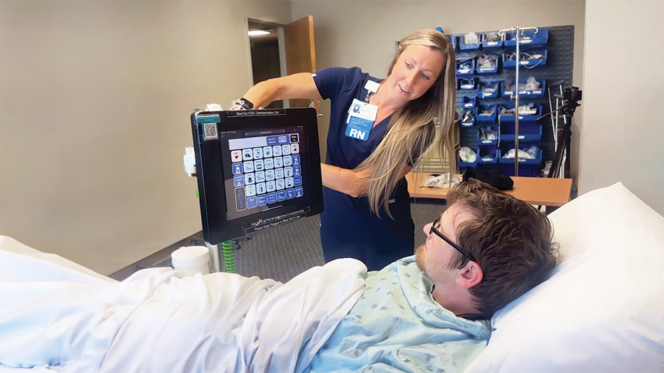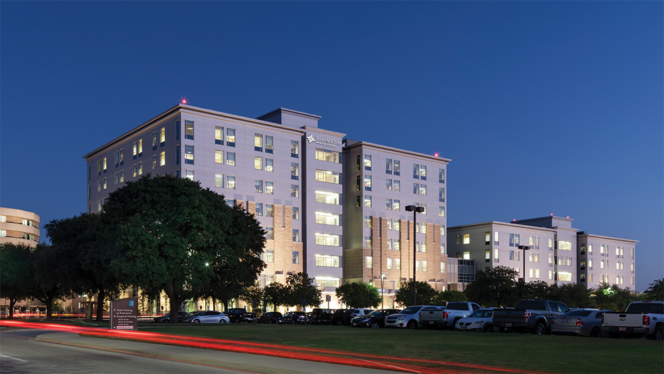At many institutions, patients with suspected cancer often wait weeks for a diagnosis and then even longer for a treatment plan. In fact, a 2023 study of more than 450,000 cancer patients across the United States found that patients waited an average of 156 days to receive a diagnosis.* This delay can occur due to the complicated sequence of tests and imaging for different cancers or even the need for prior authorizations from insurance to conduct those assessments.
Typically, a patient with abnormal results on imaging, labs or their physical exam wouldn’t see an oncologist until they have undergone multiple tests and scans to confirm a diagnosis of cancer. That initial testing is often managed by their primary care physician.
“The diagnostic work-up a patient needs varies by cancer type,” said Michael Volk, MD, chair of the Department of Medicine. “While primary care physicians are certainly our first line of defense, they are trained to have a general understanding of a wide variety of issues and may not have the specific expertise needed to navigate the process of getting a cancer diagnosis.”
“We have resources in place to limit that stressful time of uncertainty for the patient, get treatment started quickly and ultimately have better outcomes for our patients.”
Dr. Michael Volk, Chair, Department of Medicine
To respond more quickly to a possible cancer finding, the Baylor Scott & White Vasicek Cancer Treatment Center is piloting a new clinic designed to expedite the diagnostic process and plug the patient in with the right treatment team.
“We are handling a possible cancer diagnosis like an emergency because it is an emergency for that patient,” Dr. Volk said. “We have resources in place to limit that stressful time of uncertainty for the patient, get treatment started quickly and ultimately have better outcomes for our patients.”
At the clinic, a physician’s assistant meets with patients soon after a possible cancer finding to determine which tests are needed and coordinates with other specialties to schedule
them. Once cancer is confirmed, the team can connect the patient with a nurse navigator and schedule their first appointment with an oncologist.
“Before they even leave their primary physician’s office, patients or their physicians can call 724-HELP to talk to a real human at our clinic and get the ball rolling,” Dr. Volk says. “We’ve had referrals from primary care, the emergency department or even just patients who have heard about the clinic and make their own appointment.”
Since its opening in November 2024, the clinic has seen more than 160 patients with about 40% having confirmed diagnoses of cancer.
“I’m proud to be a part of this collaborative effort,” said Christopher Payne, director of operations and administrator for the Department of Medicine. “The sooner we start that cancer journey, the better the outcome will be for our patients.”
Success stories
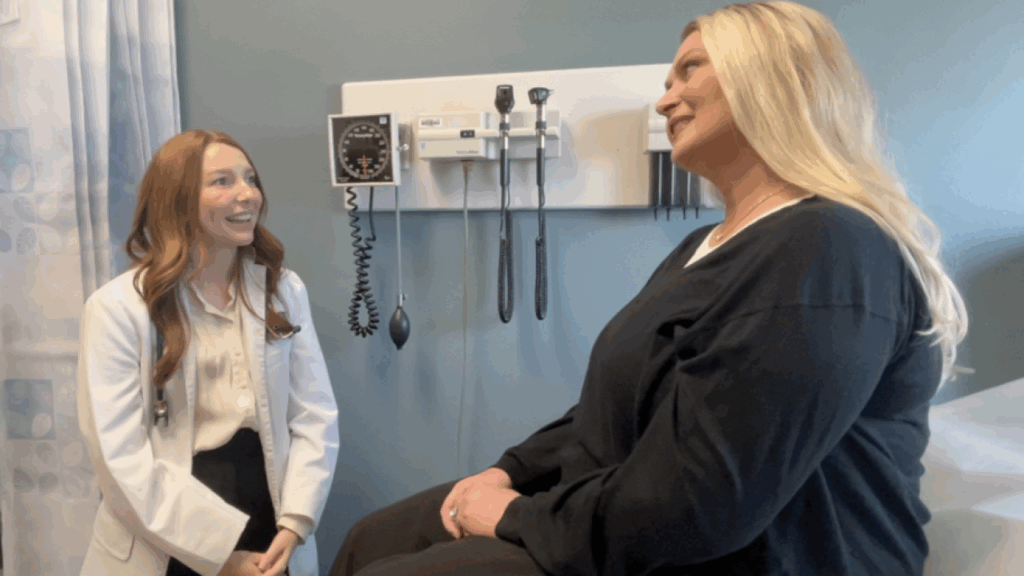
With a history of breast cancer in her family, Midland resident Laura Bond knew she needed to get checked right away when she discovered a spot on her breast. She visited the clinic in Temple and underwent a series of scans and blood tests during a single office visit. She received her results within two days.
After a vehicle collision, a woman in her 70s visited the emergency room, where she had a CT scan to assess her injuries. The scan revealed numerous concerning lesions on her liver. At the clinic, the woman underwent a biopsy within one week and began her multidisciplinary cancer treatment plan within three weeks.
When imaging and labs showed possible signs of bladder cancer in an 81-year-old farmer, his family medicine physician contacted the clinic, where he was seen the next day and scheduled for a cystoscopy with urology the following business day. After a confirmation of cancer, he was scheduled for surgery, with the whole diagnostic process taking less than two days.
